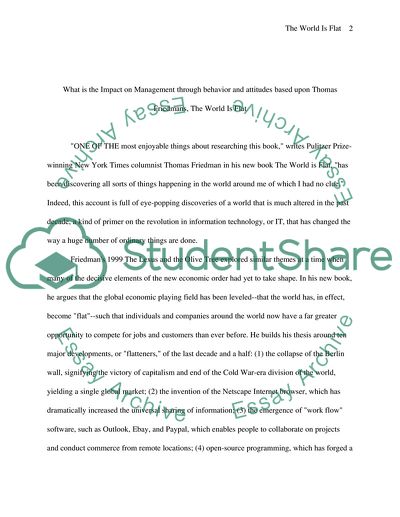Cite this document
(Effect of the Global Economic on Information Technology Book Report/Review - 1, n.d.)
Effect of the Global Economic on Information Technology Book Report/Review - 1. Retrieved from https://studentshare.org/technology/1536045-what-is-the-impact-on-management-through-behavior-and-attitudes-based-upon-thomas-friedmans-the-world-is-flat
Effect of the Global Economic on Information Technology Book Report/Review - 1. Retrieved from https://studentshare.org/technology/1536045-what-is-the-impact-on-management-through-behavior-and-attitudes-based-upon-thomas-friedmans-the-world-is-flat
(Effect of the Global Economic on Information Technology Book Report/Review - 1)
Effect of the Global Economic on Information Technology Book Report/Review - 1. https://studentshare.org/technology/1536045-what-is-the-impact-on-management-through-behavior-and-attitudes-based-upon-thomas-friedmans-the-world-is-flat.
Effect of the Global Economic on Information Technology Book Report/Review - 1. https://studentshare.org/technology/1536045-what-is-the-impact-on-management-through-behavior-and-attitudes-based-upon-thomas-friedmans-the-world-is-flat.
“Effect of the Global Economic on Information Technology Book Report/Review - 1”, n.d. https://studentshare.org/technology/1536045-what-is-the-impact-on-management-through-behavior-and-attitudes-based-upon-thomas-friedmans-the-world-is-flat.


